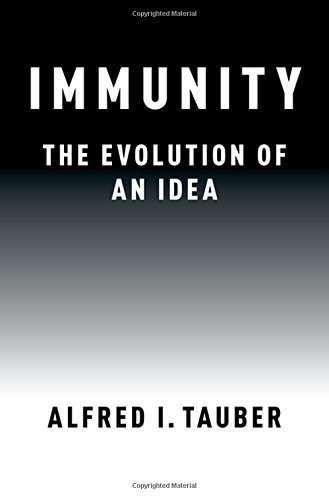(Ebook) Immunity: the evolution of an idea by Alfred I. Tauber ISBN 9780190651244, 0190651245
" Senior scholar Alfred Tauber argues in this bold account that common approaches to the study of immunology are inherently flawed in its strict dichotomy of the self and non-self, or external invaders. The relationship between what is self and what is non-self is in reality a complex, dymanic, relational one. Autonomous agents are constantly in the midst of dialectical exchanges in which immunity mediates both
noxious and benign encounters. Namely: rather than serving to defend an independent entity, immunity participates in an eco-system. Contemporary transplantation biology and autoimmunity have demonstrated phenomena that upset rigid adherence to the self/non-self dichotomy. Placing tolerant immune mechanisms within a broad ecological context has highlighted the balance of co-operative and competitive relationships in which immunity functions. By understanding immunity this way, as a 'symbiotic turn,' we come to see that immune reactivity (rejection or tolerance) is a second-order response to the cognitive functions of the immune system. Organisms have a complex capacity to respond to environment, and, through Tauber's insignts, we appreciate them more fully when we grasp the flexibility of the borders of organisms. After first providing an overview of the history of immunology, and explaining why the dominant understanding of it is incomplete and limiting, Tauber argues for this new approach to immunology and explains how it will usher in a new biology in which symbiosis is the rule, not the exception. "--"Immunity mediates both defensive and cooperative relations with the environment. Therefore, the traditional focus on host defense misconstrues the full spectrum of immune activities. An alternate model based on immune balance highlights the information processing of immune perception that precedes discriminatory decisions -- to reject, assimilate, or ignore the identified object"--
Abstract: " Senior scholar Alfred Tauber argues in this bold account that common approaches to the study of immunology are inherently flawed in its strict dichotomy of the self and non-self, or external invaders. The relationship between what is self and what is non-self is in reality a complex, dymanic, relational one. Autonomous agents are constantly in the midst of dialectical exchanges in which immunity mediates both noxious and benign encounters. Namely: rather than serving to defend an independent entity, immunity participates in an eco-system. Contemporary transplantation biology and autoimmunity have demonstrated phenomena that upset rigid adherence to the self/non-self dichotomy. Placing tolerant immune mechanisms within a broad ecological context has highlighted the balance of co-operative and competitive relationships in which immunity functions. By understanding immunity this way, as a 'symbiotic turn,' we come to see that immune reactivity (rejection or tolerance) is a second-order response to the cognitive functions of the immune system. Organisms have a complex capacity to respond to environment, and, through Tauber's insignts, we appreciate them more fully when we grasp the flexibility of the borders of organisms. After first providing an overview of the history of immunology, and explaining why the dominant understanding of it is incomplete and limiting, Tauber argues for this new approach to immunology and explains how it will usher in a new biology in which symbiosis is the rule, not the exception. "--
"Immunity mediates both defensive and cooperative relations with the environment. Therefore, the traditional focus on host defense misconstrues the full spectrum of immune activities. An alternate model based on immune balance highlights the information processing of immune perception that precedes discriminatory decisions -- to reject, assimilate, or ignore the identified object"
*Free conversion of into popular formats such as PDF, DOCX, DOC, AZW, EPUB, and MOBI after payment.


